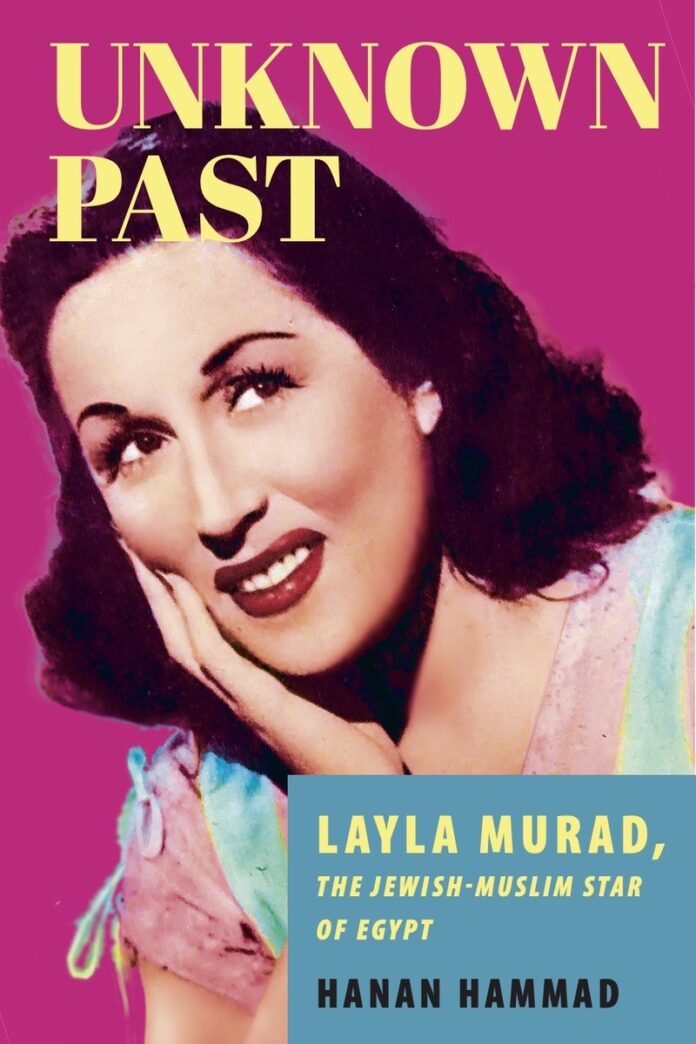DUBAI: Layla Murad led an eventful life. She was born a Jew, was professionally emancipated as an artist at 21, converted to Islam, got married three times, had her work banned by the Syrian government, was arrested for gambling, and suffered an emotional breakdown that brought her career to a premature end. But she was also one of the most celebrated actresses and singers in modern Egyptian history.
A new book, set to be published in April by Stanford University Press, explores the complex history of this extraordinary woman. “Unknown Past: Layla Murad, the Jewish-Muslim Star of Egypt” was written by Dr. Hanan Hammad, an Egyptian professor who teaches Middle Eastern studies at Texas Christian University. She was exposed to Murad’s music in her childhood, but it was her time as a journalist in Cairo in the 1990s that really piqued her interest in Murad’s story.
A new book, set to be published in April by Stanford University Press, explores the complex history of this extraordinary woman. (Supplied)
“There was increasing discussion about Layla Murad’s religion background (at that time). The headlines always suggested that there might have been a connection between her Jewishness and Israel, but when you actually read the stories, they confirmed that she never had any connection to Israel,” Hammad tells Arab News. “I was annoyed by (this) on many levels. As a journalist I saw it as unprofessional, and as a fan of Layla Murad I thought it was ridiculous. It had nothing to do with her importance as a great artist.”
Murad was born in Cairo in 1918 to Jewish parents, who were of Syrian and Moroccan heritage. Her father was a gifted vocalist who sang in synagogues — Murad would often accompany him. Her career took off as a teenager in 1934, when Egypt was still a monarchy. After the 1952 revolution, headed by Gamal Abdel Nasser, she became arguably the biggest star in the country, performing in countless Arabic musicals. “You have first tier, second tier, and third tier singers, and then you have the exceptional,” Hammad says. “Layla Murad was the exceptional under Nasser.”
Laila Mourad on the cover of Al-fan magazine, 1953. (Supplied)
Hammad explains that Murad’s rise to fame was also about being in the right place at the right time, when Egypt was an epicenter of culture in the region.
“At the beginning of her career, she was very lucky,” she says. “Egypt changed from having a privately owned, chaotic broadcast media to the national state-regulated media. Her voice and image were all over the place. She was also lucky because microphones were becoming the norm for performers, and Murad’s voice was beautiful and soft (and benefitted from amplification).”
Along with her vocal talent, Murad also had her striking looks, with her porcelain skin and jet-black hair. Her contemporary Umm Kulthum may have been the dominant diva back then, but Murad was a close contender.
Laila Mourad with Anouar Wagbi. (Supplied)
“We can (rank) Umm Kulthum’s as the most important voice, but when it comes to musical cinema, Layla Murad’s was the most important image,” said Hammad. “Many of her songs are faster and funny. She fits in very well with almost every generation.”
But luck wasn’t on Murad’s side when it came to two personal issues: her religion and gender. Murad struggled with single motherhood and was denied equal marital rights because she was a woman from a minority. The 1956 deportation of Jews in Egypt also affected her, as some of her siblings moved abroad.
She had converted to Islam in 1947 (a fact she hid from her father), and had never left her homeland, but was still falsely accused of traveling to Israel, and of donating money to the nascent nation.
Laila Mourad on the cover of Dunia Al-Fan magazine, 1948. (Supplied)
Although widely loved by the public, Murad, Hammad says, never received the recognition she deserved for her artistic contributions. The writer argues that it boils down to gender.
“Her youngest brother, Mounir Murad, received a medal from Nasser in 1964. He was the most prolific composer of songs celebrating the Nasserist regime,” she says. “Why did Mounir receive a medal and recognition, when his sister was pushed out of the picture?”
Hammad’s book was not an easy one to research. The literature on Murad was limited and sometimes censored and the writer relied heavily on vintage celebrity magazines, second-hand books, and private collections for information.
Throughout her research, what surprised Hammad the most about Murad, who died in 1995, was her hidden strength.
“People usually associate Layla Murad with her on-screen persona and the characters she played,” she says. “There’s a misconception that she was very weak, helpless, victimized, but she was a very strong person.”

